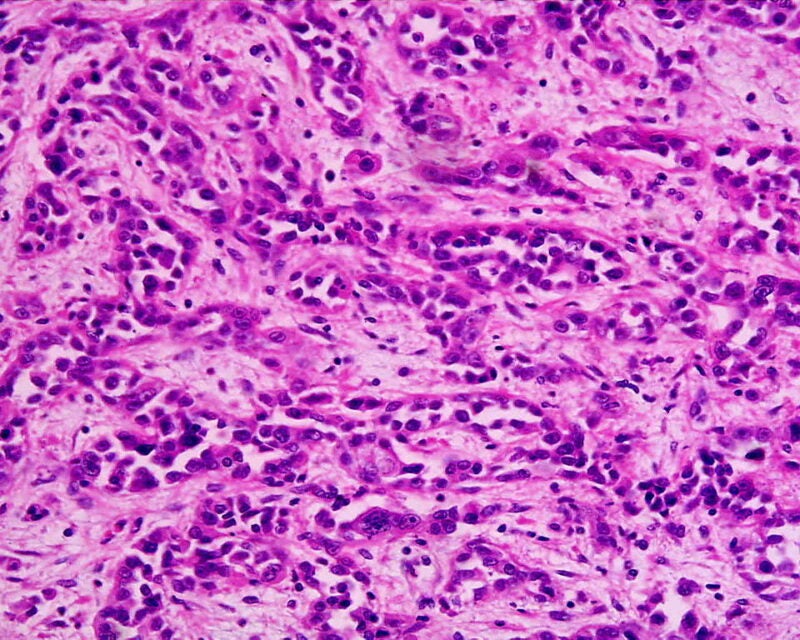
Cue Biopharma has dosed the first subject in a Phase I dose escalation clinical trial of its drug candidate, CUE-102, as a single agent to treat Wilms’ Tumor 1 (WT1)-positive recurrent/metastatic cancer patients.
In the initial stage, the trial will focus on gastric, colorectal, ovarian, and pancreatic cancers.

Discover B2B Marketing That Performs
Combine business intelligence and editorial excellence to reach engaged professionals across 36 leading media platforms.
The open-label, multicentre, dose escalation and expansion trial will analyse the safety, tolerability, anti-tumour activity, and immunogenicity of CUE-102.
It will enrol nearly 50 HLA-A*0201-positive WT1-positive recurrent/metastatic cancer patients who have failed standard treatments.
The second candidate from the CUE-100 series of interleukin 2 (IL-2)-based biologics, CUE-102, is in the development stage as a new therapeutic fusion protein.
It is said to selectively trigger tumour antigen-specific T cells for treating WT1-expressing cancers.

US Tariffs are shifting - will you react or anticipate?
Don’t let policy changes catch you off guard. Stay proactive with real-time data and expert analysis.
By GlobalDataCUE-102 comprises two WT1 peptide-presenting human leukocyte antigen (HLA) molecules, four affinity-attenuated IL-2 molecules, and an effector attenuated human immunoglobulin G (IgG1) Fc domain.
Cue Biopharma CEO Dan Passeri said: “Initiating this Phase I clinical study of CUE-102 at a starting dose of 1mg/kg, a clinically active dose in our Phase I CUE-101 clinical trial for HPV+ head and neck cancer, is an important step forward in demonstrating the modularity of our Immuno-STAT platform and the broader clinical potential of our CUE-100 series of biologics.
“We believe, given the preservation of the core molecular framework between CUE-102 and CUE-101 with the primary exception of the tumour-specific epitope, initiating the dose escalation trial at 1mg/kg will result in reduced time and cost to evaluate tolerability at therapeutically active doses.”
WT1 is a known onco-foetal protein over-expressed in various cancers including hematologic malignancies and solid tumours such as glioblastoma, gastric, pancreatic, endometrial, breast, lung, ovarian, colorectal, and acute myeloid leukaemia.





